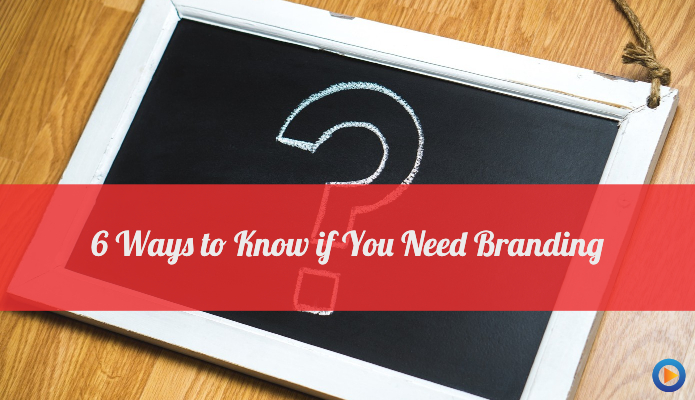Marketing messages are all around us. To you, the company you market is unique and clearly the best option. There’s just one problem: your audience might not agree. In fact, they might not even know you exist.
No doubt, marketing succeeds in large part because of the tactics you use to communicate your product’s or service’s benefit to your audience.
Without branding, though, that effort can be difficult to achieve. Do you know what makes you unique, and can you communicate that to your audience?
Do your messaging and channels combine to tell a true story?
Even many companies with major marketing budgets cannot always say yes to that. You don’t always need branding; but when you do, it’s absolutely essential to long-term success.
What Even is Branding?
Let’s start with some basic definitions. It’s easy to misunderstand what we’re even talking about, so let’s get on the same page. According to the American Marketing Association, a brand is
a customer experience represented by a collection of images and ideas; often, it refers to a symbol such as a name, logo, slogan, and design scheme.
A brand is distinct in its nature and depends much more about what your audience thinks about your product or service than what you think it is. In other words, your audience ultimately defines your brand.
That, in turn, makes branding the process of helping your audience define your brand in a way that’s favorable to you. Confused yet? Don’t worry. It boils down to a simple truth:
Branding describes the process of making your product or service feel unique or different within its competitive environment. It builds an emotional connection to your audience that extends beyond the product/service’s physical features.
A product operating in a monopoly probably doesn’t need to brand itself. The more competitive your environment is, though, the more important it becomes. Does that apply to you? Consider these five hints that you need to start investing in a branding strategy.
1) Your Message Doesn’t Cut Through the Clutter
Most of us see anywhere between 4,000 and 10,000 advertising messages every day. If you’re just like the others, there is no way your audience can actually remember your messages. Especially in competitive environments, you have to be able to find a message that your audience actually pays attention to and remembers.
That’s where branding comes in. It establishes your unique selling proposition and sells it through compelling storytelling. When you begin to see that regardless of your spend or frequency, your audience doesn’t pay attention or take action based on your ads, you probably need to invest in branding.
2) You Struggle to Identify What Makes You Unique
What actually is that unique selling proposition? Finding it can be more difficult than you think. Too often, companies focus on their own thoughts and guesses, without realizing that from a consumer perspective, their offering is actually very similar to all of their competitors.
Branding helps you solve that problem. It’s based entirely on differentiation, helping you first understand the messaging of your competitors and then identify how you are different. Once you know what actually makes you unique in the eyes of consumers, you can communicate that much more effectively.
3) Your Tactics Don’t Tell a Consistent Story
You’re active on social media and run a vibrant company blog. You place regular, relevant ads on Google, and might even have a TV commercial running. This type of multi-channel approach is crucial to success.
You won’t see success, though, if these tactics don’t actually make sense together. Each of them should leverage the unique aspects of its medium to tell a consistent, compelling story. If you don’t know what that story should be, or simply don’t know how to tie together your individual efforts, you need branding.
4) Your Teams Don’t Know How to Talk About You
Take a random poll. Stop an employee on their way in or out of work. Ask them what makes the product/service they’re working on so good, why they believe in it, and what they like about working on it. If they can’t convincingly answer, how could your potential customers?
That’s not to blame your team members. Branding for consumers is crucial, but it has to start with your own employees. Their ability (or inability) to define your brand for you can be a core guidepost in helping you understand whether or not you need a more concerted branding effort.
5) Your Marketing Attracts the Wrong Leads
This is a surprisingly common problem. Your marketing performs well on vanity metrics, such as reach, engagement, and even web clicks. But once your audience starts learning more about you, they start to jump off. What’s their problem?
The problem, it turns out, actually happens on your end. You’re likely putting out messages that attract consumers who misunderstand you at first or are looking for something different. A convincing, compelling, and ubiquitous brand can help you make sure you don’t just target better, but also send the right message to that audience to successfully turn them into customers.
6) Your Competition is Pulling Away
Finally, the most obvious marker on whether or not you need branding. If you see yourself losing ground in a competitive environment, you need to examine why. The problem may simply be superior products lapping you. Just as likely, though, is that with your competition, your audience has a commitment and knows what they’ll get.
In other words, they have a defined brand, while you don’t (yet). If you see your competition pulling away, consider a brand audit. Remember that your brand exists in your audience’s heads, whether or not you’ve been strategic about it. Compare yours with that of your competitors and if you’re behind, start working on more strategic branding efforts.
You Know You Need Branding. Now What?
Through one or more of the above steps, you’ve realized that you’re in dire need of branding. Now what? You don’t have to stick your head in the sand. Instead, it’s time to roll up your sleeves.
Strategic branding takes time and effort. Its payoffs, though, are significant. To succeed, it makes sense to work with a strategic partner who can help you find your unique selling proposition and position your brand within a competitive environment.
Better yet, find someone who can help you with executing that brand, making sure it appears and propagates through all of your tactics.
That sounds complex. It can be, but the right partner can help. Contact us to learn about our branding expertise, and to move your business forward through a comprehensive branding strategy.






